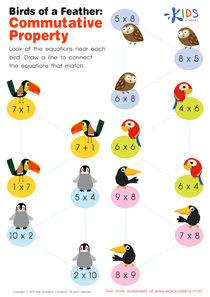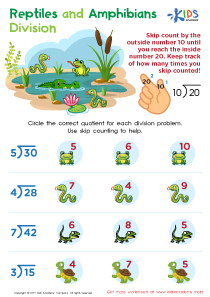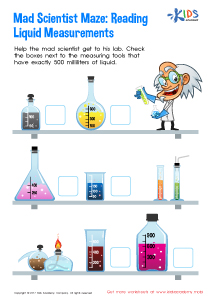Basic Arithmetic Normal Grade 3 Word Problems Worksheets
4 filtered results
-
From - To
Our "Basic Arithmetic Normal Grade 3 Word Problems Worksheets" are designed to enhance third graders' math proficiency through engaging, real-life scenarios. Each worksheet incorporates practical problems that help students apply addition, subtraction, multiplication, and division in meaningful contexts. Featuring clear instructions and a variety of difficulty levels, these worksheets aim to build students’ logical thinking and problem-solving skills while adhering to key educational standards. Perfect for classroom use or at-home practice, these comprehensive worksheets turn learning arithmetic into an exciting and rewarding adventure for your third-grader. Download now to jumpstart their journey to math success!
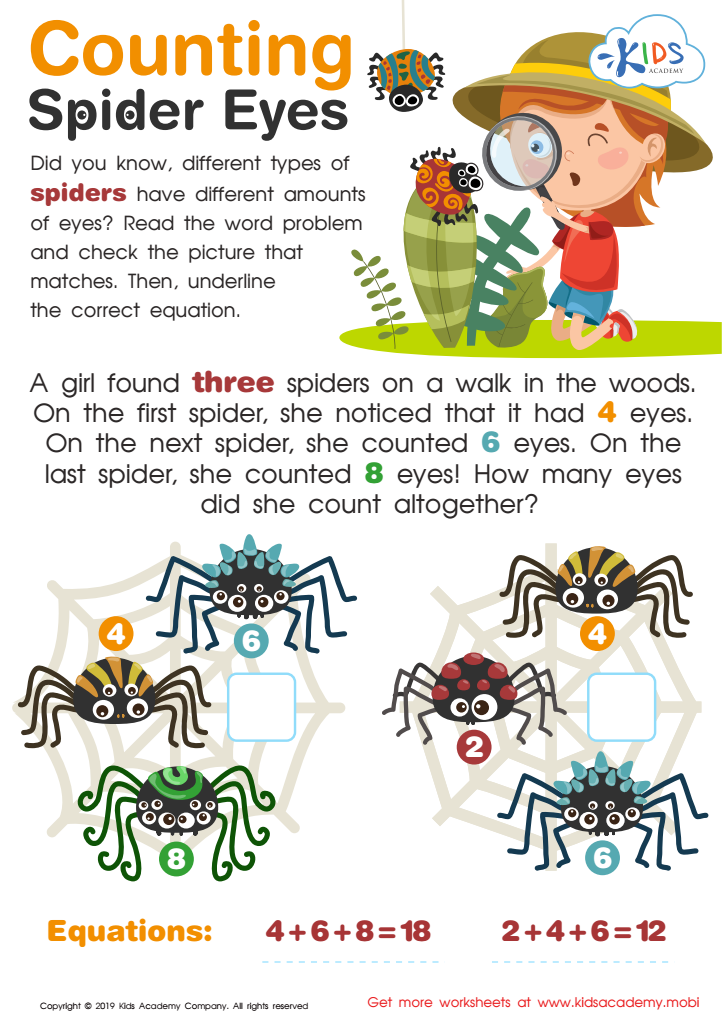

Counting Spider Eyes Worksheet
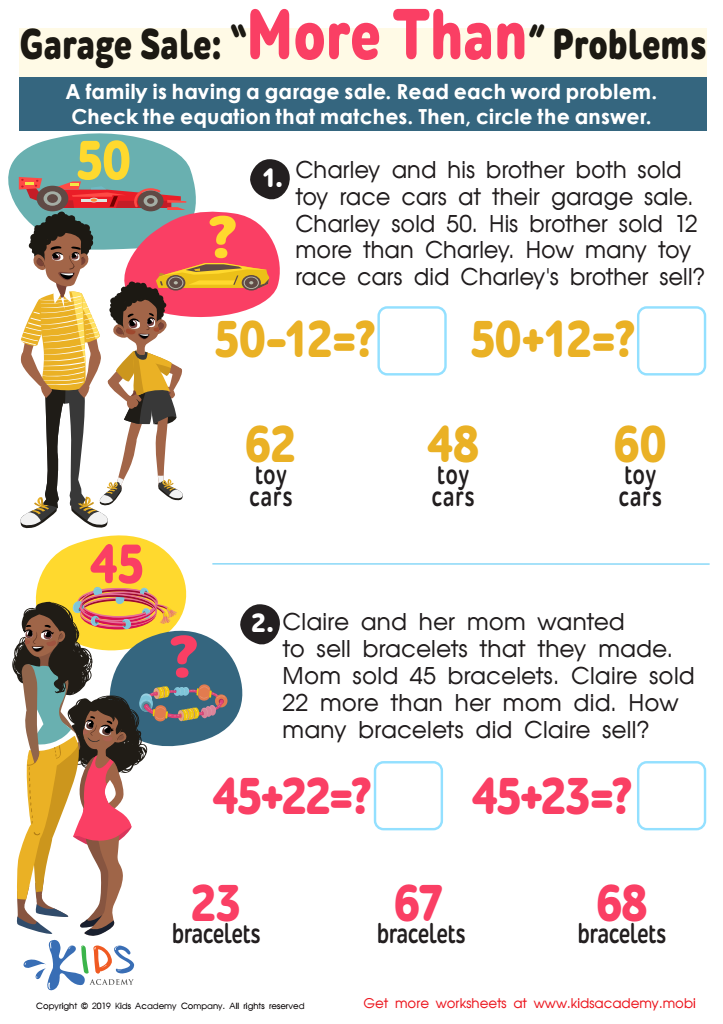

Garage Sale - More yhan Worksheet


Solve the Problem: Trick–or–treating Worksheet
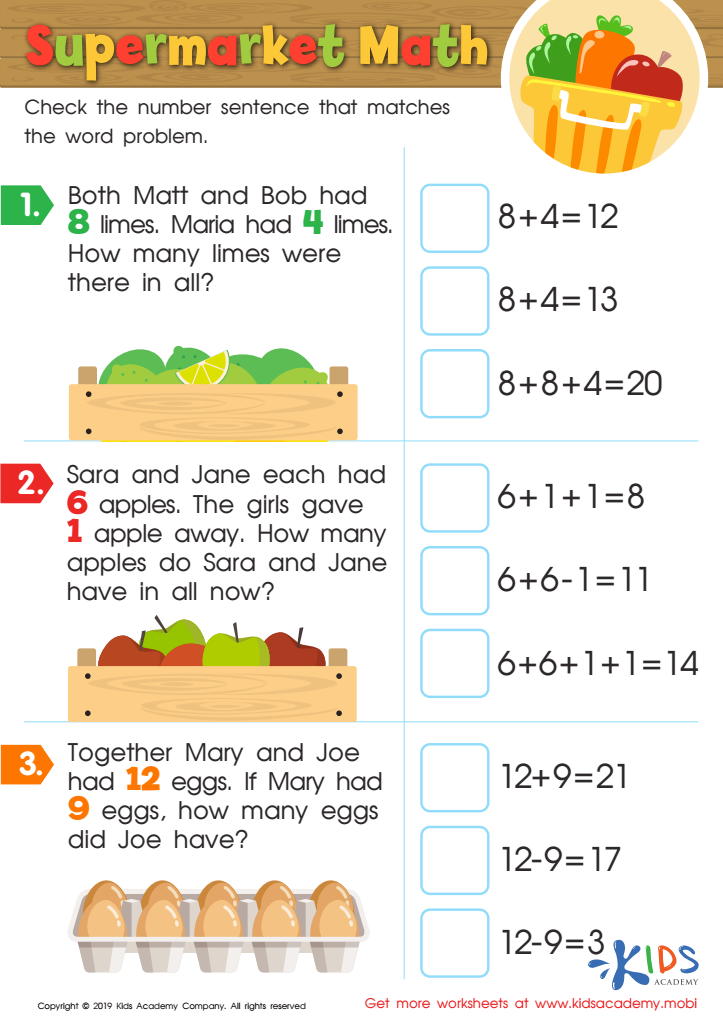

Supermarket Math Worksheet
Basic arithmetic word problems for Grade 3 are crucial for children's cognitive and academic development. These problems help students apply mathematical concepts to real-world scenarios, enhancing both their critical thinking and problem-solving skills. By engaging with word problems, children learn to translate verbal information into mathematical operations, a key step in developing numerical literacy.
Parents and teachers should care about these problems because they promote logical reasoning and analytical skills. When children solve word problems, they must identify relevant information, discard the irrelevant, and structure a solution plan. Such skills are foundational not just for math, but for all academic subjects and everyday life.
Moreover, arithmetic word problems help build a child's confidence in handling numbers and operations like addition, subtraction, multiplication, and division. As children become proficient in solving these problems, they develop a sense of achievement, motivating them to tackle more complex challenges.
By focusing on basic arithmetic word problems, parents and teachers can track a child's understanding of mathematical concepts and promote a deeper comprehension that goes beyond rote memorization. This foundational knowledge is essential for success in higher grades, making it imperative that adults support and encourage regular practice of these skills.
 Assign to My Students
Assign to My Students








